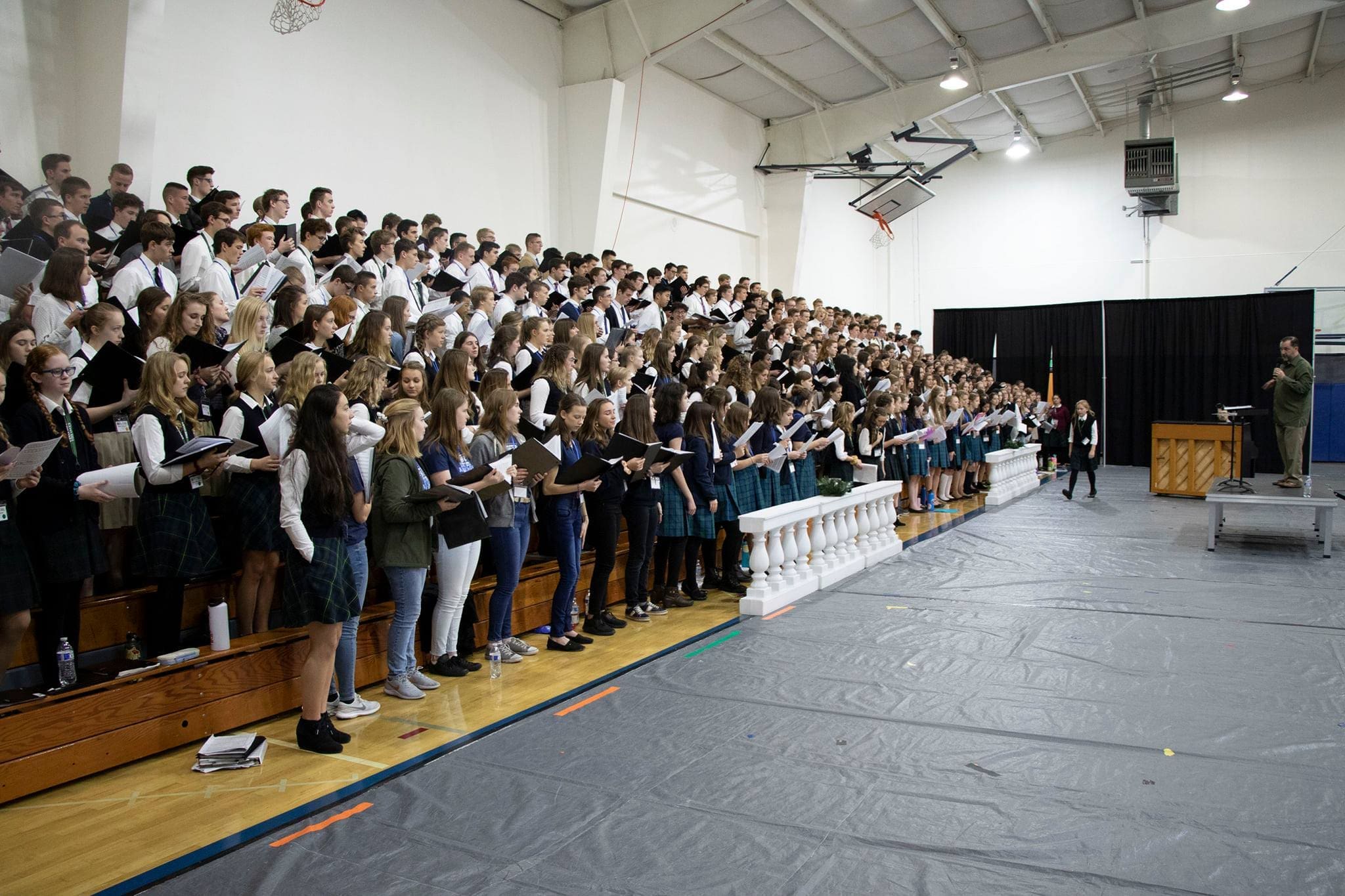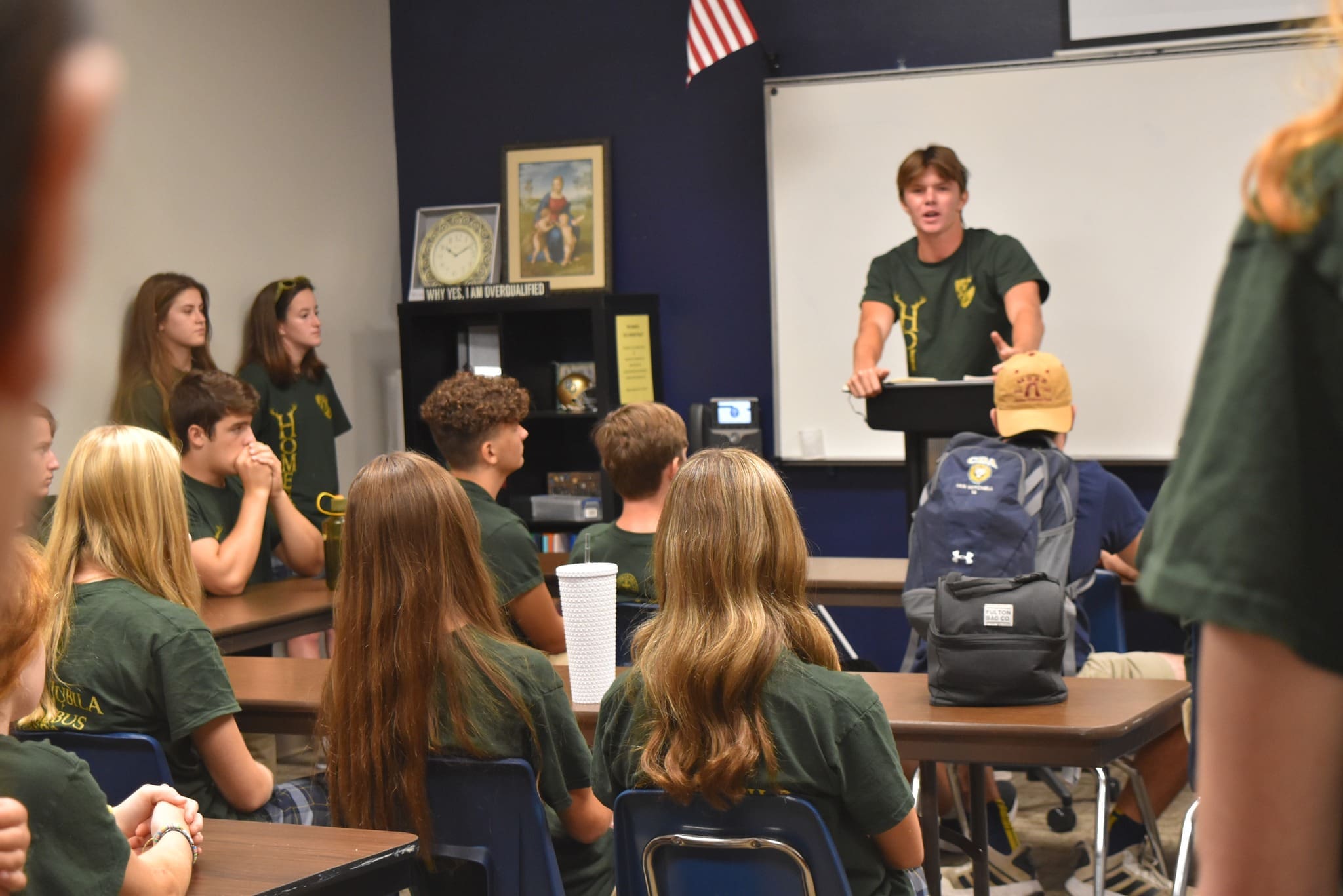The Classical University-Model® school
Several UM schools proudly identify themselves as “Classical, Christian, and University-Model®.” Highly valuing the excellence they have found in classical curriculums while also seeing the flexibility and advantages of following a UM schedule, they have found the best of both worlds.
Formation of the UMSI Classical School Division
In 2015 NAUMS, Inc. consulted with leaders of our classical schools, formed an exploratory team, and developed a Classical School Division among the member schools in UMSI.
Its purpose is to equip classical University-Model® schools with the tools and resources that would continue to help them remain Classical, Christian, and University-Model®. At the 2016 National Summit, Christopher Perrin, a recognized leader in classical school community, was a dynamic Keynote speaker, while day-long seminars and workshops were held for leaders and teachers in our classical schools. In addition, NAUMS, Inc. is developing a national classical school consulting team to more adequately assist leaders and teachers in the classical model.


Supporting the Classical Model
Leaders in the University-Model Schools International community, specifically those in the Classical School Division, along with guidance from NAUMS, Inc. leadership support classical UM schools in a variety of ways.
Christian Classical Curriculum Development
Classical Philosophy , methods, and Best Practices
Teacher Training for the Classical Classroom
Parent-Teacher Communication in the Classical Model
Teachers within a Christian classical school believe education is about forming souls, not just transmitting skills.
The goal of education is to form a mature person whose thoughts, emotions, and desires reflect truth. In classical schools, we want children to become strong readers, but we also want them to read well: We think WHAT they read is as important as THAT they read. We look for books that strengthen the student’s moral imagination and inspire a love for what is good, true, and beautiful.
Classical educators seek to cultivate wisdom and virtue as their primary goal. Although classically educated students do well on standardized tests, we don’t measure success by scores, but rather by the development of a mature person who loves learning and who makes the connection between learning and life—one who ties knowledge to responsibility and struggles to live not for himself, but for God and his neighbor.
In order to develop wisdom and virtue, classical educators make use of the humanities, the timeless works of history, literature, and poetry, along with the arts of the trivium and quadrivium. The trivium consists of three arts related to human language and subjects taught within the classrooms. The first, the art of grammar, includes reading, writing, interpreting, and judging written texts. The second, the art of logic, teaches critical thinking and develops the faculty of reason. And the third, the art of rhetoric, is comprised of beautifully ordering words so that they might persuade. For both Plato, a Greek, and Quintilian, a Roman, wisdom, justice, and eloquence are inextricably linked; a good rhetorician is “the good man speaking well.” In addition to the trivium, classical educators also consider understanding the created order to be of crucial importance. Thus, the quadrivium consists of four arts related to number–arithmetic, geometry, astronomy, and music–which we approach today through mathematics and the sciences.
Although classical education was developed by the early Greeks, it came to fruition in the Christian church. Therefore, to speak of classical education is also to speak of Christian education. The best of the ancient Greeks and Romans desired to live lives of piety and virtue, and with the coming of Christ their imperfect vision of man was fulfilled. The cardinal virtues of prudence, temperance, justice, and fortitude were crowned with the theological virtues of faith, hope, and love. Classical education asks the questions: Who is the good man? What is the good life? Christianity answers them: The good man is Jesus Christ and the good life is the one which follows Him.

